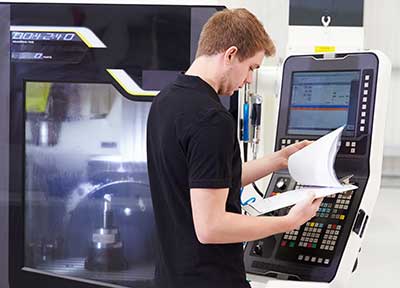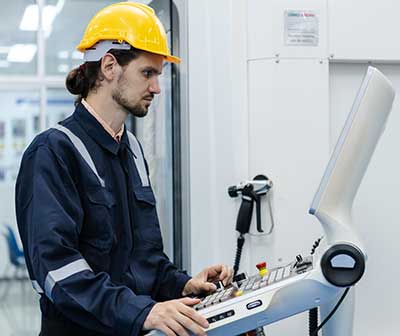CNC Machinist Staffing
RSS is Your Trusted Source for CNC Machinists
Leveraging over 30 years of staffing expertise, we possess a profound understanding of the specific challenges and needs inherent in efficiently and safely operating CNC machines. We are equipped to supply your company with skilled, experienced, and dependable CNC machinists who will integrate seamlessly into your operations.

Regional Supplemental ServicesOn-Demand Reliable Workforce

CNC Machinist Staffing Agency
As the leading engineering recruiter in the country, RSS Staffing provides talent management solutions to engineering, architectural, construction, and manufacturing companies. We comprehend the demands unique to your sector.
Our unique emphasis on engineering staffing and recruitment services allows us to offer prospects that will not only become valuable members of your team but also improve your financial performance over time. In the business, positions for CNC machinists are among the hardest to fill. Recruiting experience is generally required to source top-tier Computerized Numerical Control (CNC) talent, even if you don’t often use employment agencies.
In order to meet the challenge of filling these specialist positions, the recruiters at RSS Staffing specialize in making swift connections between our customers and CNC Operators, Machinists, and Programmers. We are dedicated to finding competent, trustworthy, local people who appreciate the opportunity these roles offer since we recognize the crucial necessity of this function to your operations.
Reliable and Experienced CNC Machinists


Positions We Fill
Machinst
CNC Machine Operator
CNC Lathe Machinist
CNC Set-Up Technician
CNC Programmer
Master CNC Machinist
CNC Router Operator
CNC Plasma Programmer
Why RSS?
Adaptability & Reliability: Our staffing solutions are crafted to flexibly meet the changing demands of your CNC operations, ensuring you have the skilled personnel necessary for seamless process management.
Cost-Efficient Approaches: Using RSS for your temporary staffing requirements reduces the costs and hurdles associated with recruiting and training. Our approach is cost-effective, allowing for better resource allocation.
Emphasis on Safety: The safety of your workspace is our top priority. We assure that each CNC operator we supply adheres to the strictest safety protocols, minimizing hazards and promoting a safe working environment.
Get in Touch
Contact RSS today to discover how our specialized temporary staffing services can assist in maintaining smooth, efficient, and secure operations
Machinist positions in the CNC business are among the most difficult to fill in the industry. If you are looking for top-tier Computerized Numerical Control (CNC) personnel, you will frequently want recruitment experience. This is true even if you do not typically rely on employee placement agencies. RSS Staffing’s recruiters are experts in promptly connecting our clients with CNC Operators, Machinists, and Programmers.
This allows them to solve the difficulty of filling positions that require specialized skills and knowledge. We are committed to securing competent, local, and dependable people who are interested in the prospects that these roles offer. We are aware of the crucial importance that this role plays in your operations, and we are committed to securing them.
Client Testimonials
Frequently Asked Questions
What training does a CNC Machinist require?
Training for a CNC machinist typically involves a combination of education, technical training, and hands-on experience. The goal is to equip individuals with the skills needed to operate, program, and maintain CNC (Computer Numerical Control) machines, which are used to cut, shape, and finish metal and other materials. Here’s a breakdown of the training requirements:
1. Educational Background
- High School Diploma or GED: The foundational requirement for most CNC machinist training programs.
- Mathematics: A solid understanding of basic math, algebra, and geometry is essential for understanding machining processes and CNC programming.
2. Technical Training
- Vocational or Technical Schools: Many machinists start training at vocational schools, technical colleges, or community colleges that offer machining technology or CNC operations programs. These programs typically last from several months to two years and include classroom instruction and hands-on training.
- Apprenticeships: Some machinists enter the field through apprenticeship programs combining on-the-job training with classroom instruction. Apprenticeships are sponsored by employers, labor unions, or industry associations and can take up to four years to complete.
3. Certifications
- Certification Programs: Although not always required, certifications can enhance a machinist’s job prospects and credibility. Organizations like the National Institute for Metalworking Skills (NIMS) offer certifications validating a machinist’s skills in CNC programming, operation, and setup.
4. Skills Development
- CNC Programming: Learning CNC programming languages (e.g., G-code) is crucial for creating and editing programs controlling machine tools.
- Machine Operation and Maintenance: Operators must know how to set up machines for specific jobs, load materials, and perform routine maintenance and troubleshooting.
- Blueprint Reading: The ability to read and interpret technical drawings and blueprints is vital for manufacturing parts to specification.
- Quality Control: Machinists learn to use precision measuring instruments, such as micrometers and calipers, to inspect and ensure the quality of their work.
5. Continuing Education
- Technology Updates: Because manufacturing technology evolves rapidly, continuing education is essential for staying up-to-date with the latest machinery, software, and production techniques.
- Advanced Training: Experienced machinists may pursue further training in advanced machining techniques and CNC programming or even move into related fields such as CNC machine tool technology, manufacturing engineering, or management.
Are there training schools for CNC Machinists?
Yes, many training schools and programs are available for aspiring CNC machinists. These educational programs are designed to provide the foundational knowledge and hands-on experience necessary to operate and program CNC machines. Training for CNC machinists can be found in various types of institutions and formats, including:
Technical and Vocational Schools
These schools offer certificate and diploma programs in CNC machining, providing students with a comprehensive introduction to CNC fundamentals, programming, machine operation, and safety procedures.
Community Colleges
Many community colleges offer associate degree programs in manufacturing technology, machining, or related fields. These programs often include coursework in CNC operations, programming, CAD/CAM (Computer-Aided Design and Computer-Aided Manufacturing), and quality control.
Apprenticeship Programs
Apprenticeships combine on-the-job training with classroom instruction, allowing students to earn while they learn. These programs are often sponsored by employers, industry associations, or labor unions and can lead to full-time employment upon completion.
Online Courses and Programs
Online training programs and courses cover CNC machining principles, programming languages like G-code, and other relevant topics. These can be a good option for those looking to supplement their knowledge or for workers already in the field seeking to upgrade their skills.
Manufacturer-Specific Training
Some equipment manufacturers offer training programs for their specific CNC machines. These can be beneficial for machinists who work with or plan to work with a particular brand or type of machinery.
Key Components of CNC Machinist Training
- Fundamentals of machining: Understanding the basics of the machining process, including different types of materials, tools, and techniques.
- CNC programming: Learning to write and troubleshoot programs using CNC programming languages, such as G-code.
- Machine operation: Hands-on experience with setting up, operating, and maintaining CNC machines.
- Safety: Training on how to safely operate CNC machinery and maintain a safe working environment.
- Quality control: Techniques for measuring and ensuring the quality of machined parts, using instruments like calipers and micrometers.
When choosing a training program, it’s important to consider factors such as the curriculum, faculty expertise, facilities, and the program’s track record for job placement. Accreditation by a recognized body can also be an indicator of a program’s quality.
Is CNC machining in demand?
Indeed, CNC machining is really sought for. The following are some explanations:
Many sectors, like electronics, automotive, and aerospace, depend mostly on CNC machining for manufacturing, which fuels ongoing demand for these techniques.
– ** Efficiency and Precision:** In the very competitive market of today, making intricate parts with great accuracy and efficiency depends on CNC machines.
**Technology Advancements:** CNC operators who can control more complex machinery and software will be in increasingly demand as technology develops.
** Replacement of Older Workforce:** The aging manufacturing workforce presents chances for fresh graduates to enter the business and pick CNC machining techniques.
All things considered, the combination of high precision standards of modern production and technology integration in manufacturing guarantees that CNC machining stays a useful and sought-after ability in the workforce.
Is CNC machinist a skilled trade?
Yes, CNC machinist is considered a skilled trade. Here’s why:
– **Technical Knowledge:** CNC machinists must understand complex programming languages and how to operate CNC machinery, which involves precise software and hardware knowledge.
– **Precision Crafting:** The role requires the ability to produce highly precise and intricate parts for various industries, demanding meticulous attention to detail.
– **Problem Solving:** CNC machinists often troubleshoot issues with the machines and the manufacturing process, requiring a strong problem-solving ability.
– **Training and Certification:** Becoming a CNC machinist typically involves specialized training, apprenticeships, or certification programs that provide the necessary skills and knowledge.
This combination of required education, technical proficiency, and practical experience firmly places CNC machinists within the realm of skilled trades.
What is a red seal machinist?
Fully qualified machinists have the expertise and skills to set up and operate conventional, portable, and Computer Numerical Control (CNC) machines that shape metal and other materials into precisely dimensioned products through cutting or grinding processes.
What Does a CNC Machinist Do?
CNC machinists require a robust understanding of mathematics, mechanics, production, processing, and design to perform their duties effectively. Coordination, critical thinking, and knowledge of equipment operation and control are crucial.
Possessing analytical, mechanical, and technical skills is essential. Physical stamina is also vital due to the demanding work environment, which often involves standing and manual manipulation of tools.
CNC machinists apply their knowledge and skills in various tasks, including:
– Calculating precise dimensions
– Operating machine tools such as lathes, grinders, milling machines, and shapers
– Securing and overseeing cutting tools and other machine materials
– Measuring and testing finished products to identify any defects
– Maintaining machine tools and operational equipment
– Developing work procedures
CNC Job Opportunities
CNC machinists hold various titles across numerous industries, providing diverse and exciting career opportunities for those with the requisite skills.
Many graduates from technical institutes begin their careers in roles such as entry-level technicians or similar positions. With time, dedication, and experience, there is potential for career advancement. Possible positions for CNC machinists include:
Entry-level Positions – CNC Machinists
– CNC Machinist
– CNC Operator
– Machined Parts Inspector
Advanced Positions – for CNC Machinists
– CNC Mill Operator
– Quality Control Inspector
– Design Engineer
– Mechanical Assembler
– CNC Programmer
CNC machinists can leverage their skills in numerous locations worldwide, with opportunities available from the West Coast to the East Coast of the United States, and even internationally.
Work Environment:
Machinists typically work in factories, machine shops, or tool rooms. While many hold full-time positions during regular business hours, some settings operate around the clock, requiring weekend and evening shifts.
For Employers Looking for Staffing Solutions?
Employers please submit the form below regarding your need for staffing solutions.
